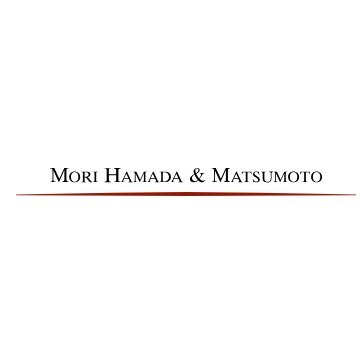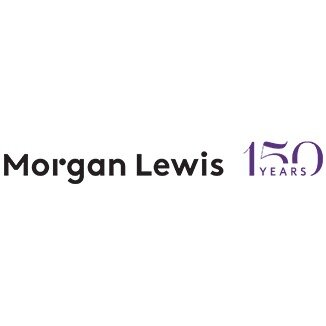Best Debt Capital Markets Lawyers in Chiyoda-ku
Share your needs with us, get contacted by law firms.
Free. Takes 2 min.
List of the best lawyers in Chiyoda-ku, Japan
About Debt Capital Markets Law in Chiyoda-ku, Japan
Debt Capital Markets (DCM) play a vital role in the financial ecosystem of Chiyoda-ku, Tokyo, one of Japan’s most important business districts. DCM law refers to the legal framework governing the issuance, structuring, sale, and regulation of debt instruments such as bonds, notes, and other fixed income securities. In Chiyoda-ku, many multinational financial institutions, major Japanese banks, and investment firms are headquartered, making it a central hub for debt capital market transactions.
The landscape in Chiyoda-ku is governed by both national Japanese legislation and local regulatory practices. Participants include corporations, financial institutions, government entities, and investors seeking to raise or allocate funds. The smooth functioning of DCM depends on compliance with laws, transparency of transactions, and protection of investor interests.
Why You May Need a Lawyer
Engaging in Debt Capital Markets can be complex. You may require a lawyer in various situations, such as:
- Structuring and issuing bonds or notes on the domestic or international market
- Ensuring compliance with the Financial Instruments and Exchange Act (FIEA) and other regulations
- Navigating cross-border transactions or dual listings
- Negotiating terms with counterparties or underwriters
- Drafting and reviewing documentation, such as offering memoranda and trust deeds
- Dealing with regulatory investigations, enforcement actions, or compliance audits
- Managing disputes related to defaults, restructurings, or investor claims
- Guiding foreign entities entering the Japanese debt markets
A legal professional can help you minimize risks, interpret complex regulations, and optimize your participation in the market.
Local Laws Overview
The legal framework for Debt Capital Markets in Chiyoda-ku comprises several key statutes and regulations:
- Financial Instruments and Exchange Act (FIEA): Governs the issuance, registration, and disclosure obligations for debt securities.
- Companies Act: Sets out rules on corporate governance and how companies may raise funds through debt instruments.
- Foreign Exchange and Foreign Trade Act (FEFTA): Imposes certain restrictions on foreign investment and issuance of securities to foreign investors.
- Tokyo Stock Exchange (TSE) Rules: Apply to bonds or notes listed and traded on the TSE, affecting disclosure and trading practices.
- Local Regulations in Chiyoda-ku: While most rules are national, local procedural requirements, registration processes, and tax obligations may also apply.
Additionally, debt transactions often involve compliance with anti-money laundering (AML) standards, privacy laws, and tax reporting requirements. Japanese law places especial emphasis on investor protection through mandatory disclosures, suitability checks, and transparent reporting.
Frequently Asked Questions
What is considered a Debt Capital Market transaction in Japan?
A Debt Capital Market transaction involves issuing or trading debt securities such as bonds, debentures, or structured notes by corporations, banks, municipalities, or the government to raise capital from investors.
Who regulates Debt Capital Markets in Chiyoda-ku?
The Financial Services Agency (FSA) is the primary regulator, with the Tokyo Stock Exchange (TSE) overseeing market operations. Other authorities may be involved depending on the nature and location of the transaction.
Do I need approval to issue bonds in Japan?
Most public offerings of bonds require registration with the FSA and compliance with disclosure and reporting requirements under the FIEA. Private placements may face fewer regulations but still require legal scrutiny.
Can foreign entities participate in Japan’s Debt Capital Markets?
Yes, foreign entities can participate but must adhere to Japanese laws, including FEFTA restrictions and additional disclosure and reporting standards. Legal advice is recommended to navigate these requirements.
What are the disclosure requirements for a bond issuance?
Issuers must provide a prospectus detailing financial statements, risk factors, redemption terms, and other information to inform and protect investors, as mandated by the FIEA.
How are defaults or restructurings handled?
Legal procedures for defaults or restructurings involve court processes, potential negotiations with creditors, and adhering to bond covenants or trust deed terms. Legal expertise is crucial in protecting your interests.
Are there tax implications for issuing or investing in bonds?
Yes, both issuers and investors may incur withholding tax, stamp duty, and income tax in accordance with Japanese tax law. Tax liabilities may vary based on residency and transaction structure.
What legal risks exist in Debt Capital Market transactions?
Risks include regulatory non-compliance, misrepresentations in disclosure, market volatility, counterparty risk, and litigation. Lawyers help manage these risks through due diligence and comprehensive documentation.
Can individuals invest in Debt Capital Markets, or is it limited to institutions?
Both individuals and institutions can invest, although minimum investment amounts and suitability requirements may apply. Many instruments are structured for professional investors.
What steps are involved in listing a bond on the Tokyo Stock Exchange?
The process includes preparing offering documents, regulatory filings, meeting TSE listing requirements, obtaining approvals, and ongoing post-listing disclosures under TSE and FIEA rules.
Additional Resources
If you seek further information or assistance, consider the following organizations and governmental bodies:
- Financial Services Agency (FSA)
- Tokyo Stock Exchange (TSE)
- Japan Securities Dealers Association (JSDA)
- Japanese Ministry of Finance (MOF)
- Chiyoda-ku Ward Office Legal Affairs Division
- Japan Investor Protection Fund (JIPF)
- Japan Fair Trade Commission (JFTC) for competition matters
These resources can provide regulatory guidelines, market updates, and information on authorized legal professionals.
Next Steps
If you believe you need legal assistance with a Debt Capital Markets matter in Chiyoda-ku, follow these recommendations:
- Identify the specific nature of your transaction or concern, such as issuance, compliance, or dispute.
- Gather all relevant documents, including contracts, offering materials, and correspondence.
- Consult with a qualified attorney specializing in Debt Capital Markets or securities law who is familiar with both national and local laws.
- Schedule an initial consultation to discuss your situation and explore possible legal strategies.
- Follow up with the appropriate regulatory authorities if required, and ensure you comply with all ongoing legal and regulatory obligations.
Taking these steps will help safeguard your interests, ensure regulatory compliance, and make your engagement with Debt Capital Markets in Chiyoda-ku as smooth as possible.
Lawzana helps you find the best lawyers and law firms in Chiyoda-ku through a curated and pre-screened list of qualified legal professionals. Our platform offers rankings and detailed profiles of attorneys and law firms, allowing you to compare based on practice areas, including Debt Capital Markets, experience, and client feedback.
Each profile includes a description of the firm's areas of practice, client reviews, team members and partners, year of establishment, spoken languages, office locations, contact information, social media presence, and any published articles or resources. Most firms on our platform speak English and are experienced in both local and international legal matters.
Get a quote from top-rated law firms in Chiyoda-ku, Japan — quickly, securely, and without unnecessary hassle.
Disclaimer:
The information provided on this page is for general informational purposes only and does not constitute legal advice. While we strive to ensure the accuracy and relevance of the content, legal information may change over time, and interpretations of the law can vary. You should always consult with a qualified legal professional for advice specific to your situation.
We disclaim all liability for actions taken or not taken based on the content of this page. If you believe any information is incorrect or outdated, please contact us, and we will review and update it where appropriate.














